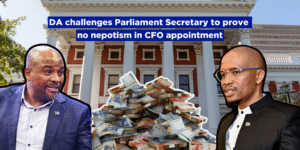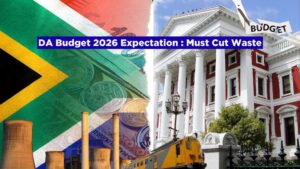Please find attached soundbites by Gwen Ngwenya DA Head of Policy; Michael Cardo MP, DA Shadow Minister for Employment and Labour; and Adrian Roos MP, DA Shadow Deputy Minister of Home Affairs, in English and Afrikaans.
- Also click here for the abridged version of the DA’s position on migration
As part of a series of engagements on the party’s policy package, the DA has today released its migration policy. The policy is premised on advocating for opportunity instead of fear, as espoused by some politicians for political profit.
South Africa has struggled with incidences of xenophobic sentiment and related prejudice, violence, and crime for many years. The cost of xenophobia is high; it puts lives in danger, stunts economic potential by deterring investment, tourism and cross-border trade, and risks making South Africa a pariah in Africa and on the global arena.
However, it is critical to constructively engage legitimate fears and concerns. Demonising genuine fears and concerns risks entrenching opinions and other defensive positions. The task for any government is to harness the potential of migration, while taking seriously the anxieties of those who feel left behind. Helpfully, the narrative of opportunity is backed by the weight of socioeconomic evidence.
To this end, the DA’s opportunity migration policy is anchored on 3 pillars:
- Opportunity created by freer movement of people – The language of fear communicates that we need to do a better job of keeping people out, while the language of opportunity is that we need to do a better of job of enabling people to enter and remain legally. This includes secure borders, as well as efficient, fair, and transparent legal channels for migration and trade.
- Opportunity created by economic participation of migrants – The language of fear is that foreign migrants compete for public resources and jobs; the language of opportunity is that migrants pay rent, pay taxes, transfer skills, know-how and knowledge, and purchase goods and services contributing to South Africa’s revenue. Foreign migrants often create jobs and, in some areas, employ more South Africans than locals.
- Opportunity to address harmful myths – The language of fear also communicates that foreign nationals threaten our way of life; the language of opportunity is that those who flee economic hardship and authoritarian rule are often strongly committed to liberal democracy and to championing human rights.
In order to enable the full realisation of these key pillars, the DA migration policy offers practical interventions on key deliverables, which include:
- Implementation of an advanced migration registry system to properly document all migrants when entering or leaving the country;
- Move to a points-based skilled migration system, as opposed to a skills-demand system, as the points-based system has proven to be more attractive to aspiring skilled migrants;
- Explore the economic cost vs benefit of an e-verification system that would enable employers to check the work eligibility status of potential employees against a Home;
- Blacklisting officials who have been found guilty of involvement in migration corruption and fraud from working for any state agency or government department as well as laying criminal charges;
- Introduce a trader’s permit/visa for all other African countries;
- Support the roll out of an African passport.
The DA will be taking additional steps over the next few months to ensure that proposals contained in our migration policy become part of the wider national debate on immigration reform. Our unique policy offer outlines what a DA government will do to promote efficiency and transparency in our immigration system, including the legal movement of foreign nationals in South Africa




